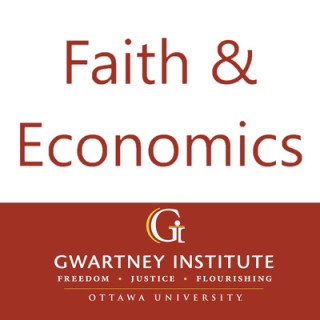

Julia Norgaard joins the Gwartney team this week to talk about the Pope and economics. Julia R. Norgaard received her Ph.D. from George Mason University where she was a Ph.D. fellow at the Mercatus Center and a graduate lecturer. In 2015, she received her master's degree in economics from George Mason University. Dr. Norgaard received her BA in economics with a minor in mathematics from the University of San Diego in 2012. Her interests include applied microeconomics and political economy as well as law and economics and development. Dr. Norgaard created and currently runs both the PEP Talks Research Seminar and the Economics Reading Group. She has a passion for both research and teaching economics. We really enjoyed this show and look forward to another show with Julia in the future. Enjoy the show!
Timeline:
The Pope knows his Econ - 1:00
There is no official training - 4:15
Popes Influenced from their backgrounds - 5:15
Pope Francis is less friendly to free markets - 7:40
Can't escape words out of the mouth - 8:15
Pope is 'American' - 11:30
Culture's effect? - 15:45
Some specific views - 17:30
It's important for the Pope to be in the discussion - 20:30
Are Pope's leading social trends - 24:30
What is Ex Cathedra? - 25:15
Shook it up - 32:00